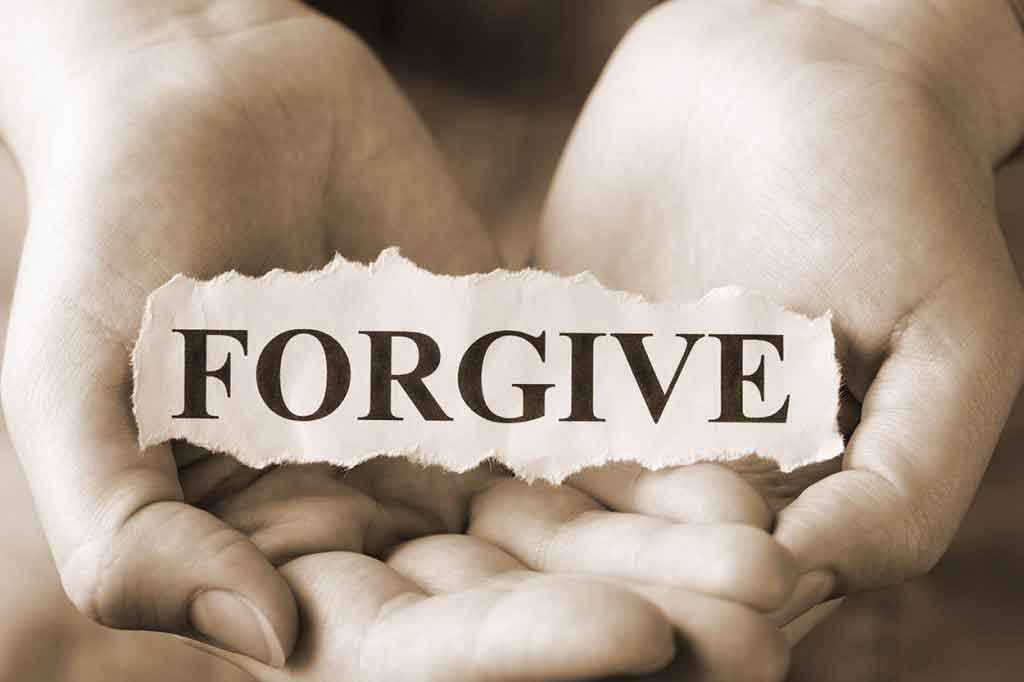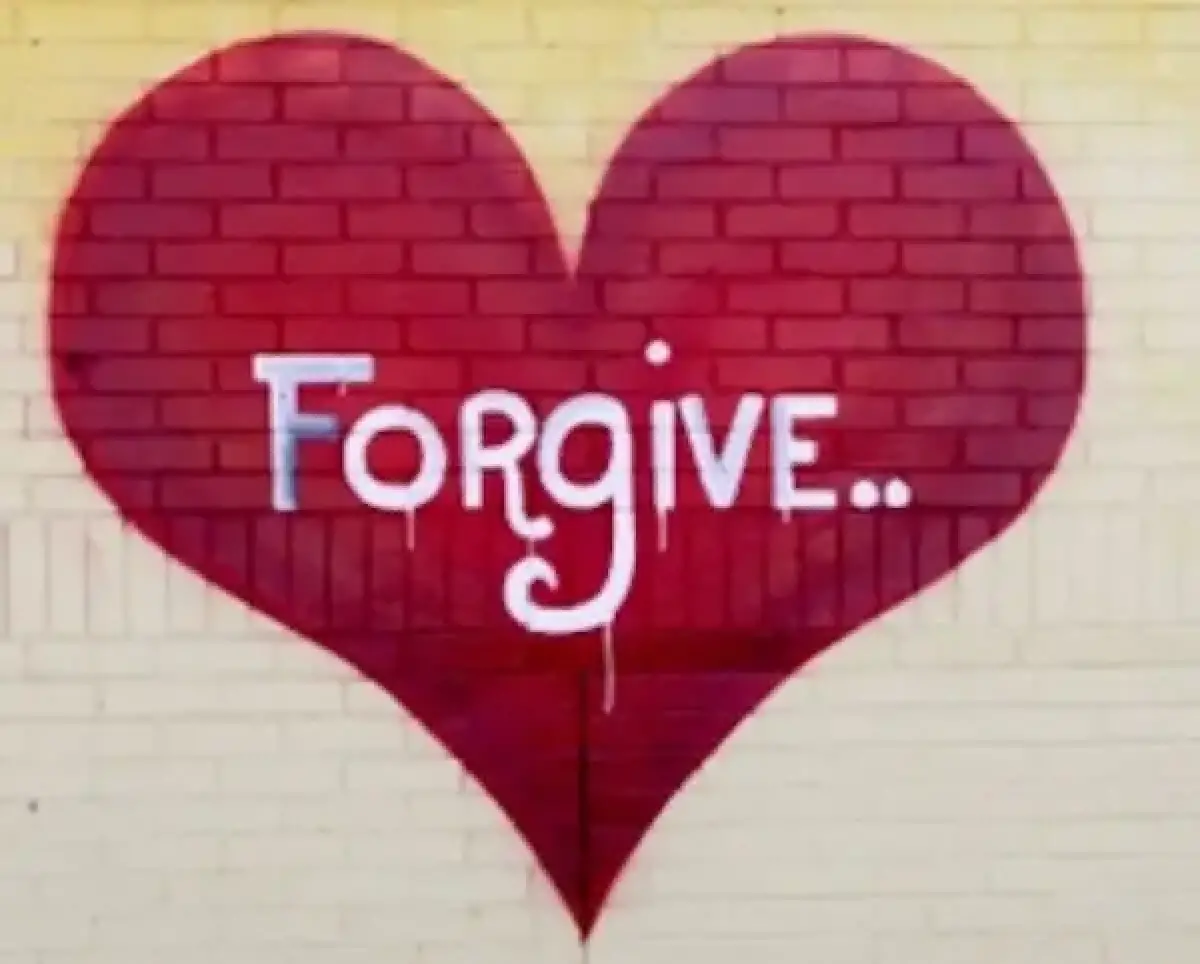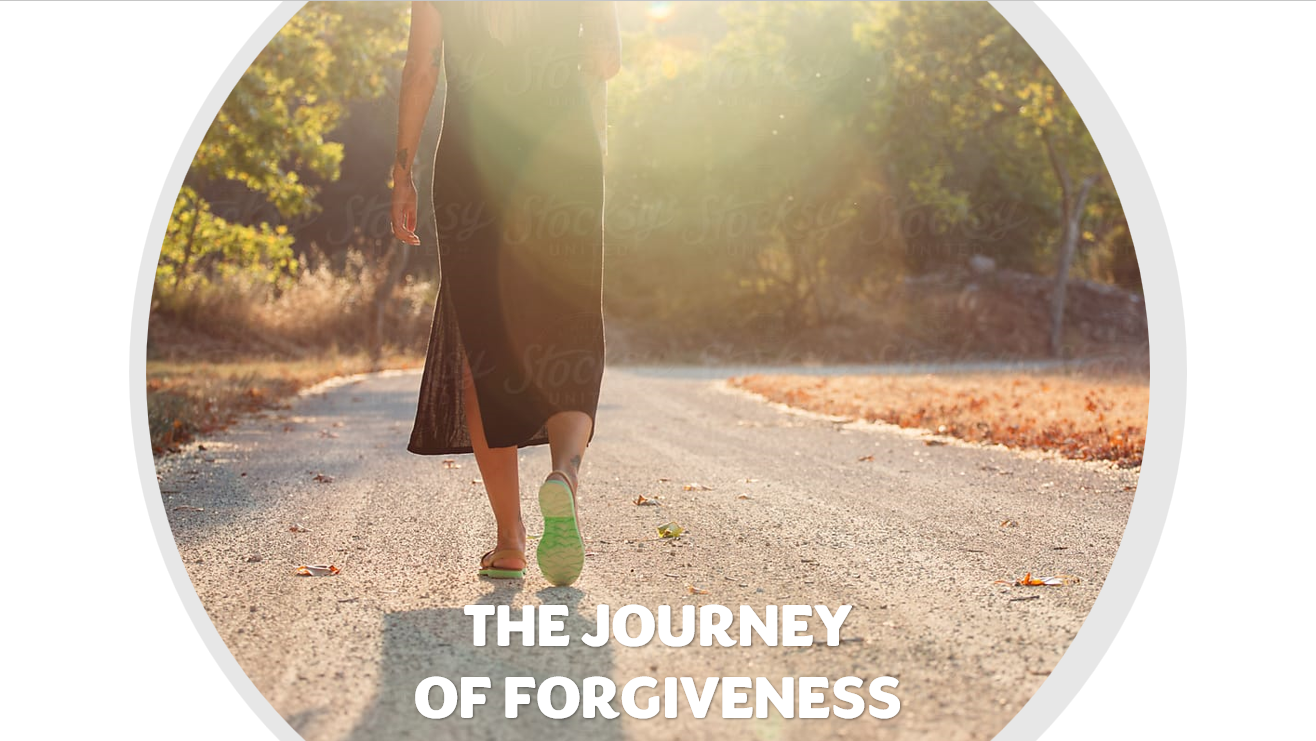Key Takeaways
- Forgiveness improves mental health by reducing stress, anxiety, and depression.
- It can lead to healthier relationships by fostering empathy and understanding.
- Holding grudges negatively impacts physical health, increasing the risk of heart disease.
- Recognizing the need to forgive is the first step in the forgiveness journey.
- Setting realistic expectations helps manage the process of forgiveness effectively.
Why Forgiveness is Important for Personal Growth
Forgiveness is a powerful tool that facilitates personal growth and emotional well-being. At its core, forgiveness is about releasing the burden of resentment and bitterness that can weigh us down. By choosing to forgive, we open the door to healing and a more peaceful life.
It’s not just about letting someone else off the hook; it’s about freeing yourself from the chains of anger and pain. When we hold onto grudges, we essentially allow the past to control our present and future. Letting go of these negative emotions can lead to profound personal transformation.

“Forgiveness After Betrayal – Hope Redefined” from hoperedefined.org and used with no modifications.
Emotional and Mental Health Benefits
“Studies have shown that forgiving others produces strong psychological benefits for the one who forgives. It has been shown to decrease depression, anxiety, unhealthy anger, and the symptoms of PTSD.” — Greater Good Science Center
Forgiveness can significantly enhance your mental and emotional health. When you forgive, you reduce stress, anxiety, and depression. This is because you are no longer focusing on the negative feelings that can consume your thoughts and emotions.
Moreover, forgiveness can increase your sense of well-being and happiness. It allows you to move forward with your life without being tied down by past hurts. Imagine the freedom and lightness you could feel by letting go of grudges and embracing forgiveness.
Impact on Relationships
Forgiveness plays a crucial role in building and maintaining healthy relationships. It fosters empathy and understanding, allowing you to see situations from another person’s perspective. This can lead to deeper connections and a stronger sense of trust.
- Forgiveness encourages open communication and honesty.
- It helps to rebuild trust after conflicts or misunderstandings.
- By forgiving, you create a more positive and supportive environment.
When you practice forgiveness, you demonstrate compassion and a willingness to move past conflicts. This can strengthen your relationships and help you build a more supportive network of friends and family.
Long-Term Effects of Holding Grudges
Holding onto grudges can have detrimental long-term effects on your health and well-being. It keeps you trapped in a cycle of negativity and prevents you from moving forward. This constant stress can take a toll on your physical health, increasing the risk of heart disease and other stress-related illnesses.
Getting Started with Forgiveness
Beginning the journey of forgiveness can be daunting, but it’s essential for personal growth. The first step is recognizing the need to forgive. Acknowledging that you are holding onto negative emotions is crucial in deciding to let go.
Recognizing the Need to Forgive
Understanding when and why you need to forgive is the foundation of the forgiveness process. Reflect on your emotions and identify situations where you feel anger or resentment. Ask yourself if these feelings are holding you back from living a fulfilling life.
By identifying these areas, you can begin to address them and take steps toward forgiveness. Remember, it’s not about forgetting what happened, but rather about releasing the hold it has over you.
Understanding the Process of Forgiveness
Forgiveness is a journey, not a one-time event. It involves several stages, including acknowledging the hurt, processing your emotions, and deciding to let go. It’s important to be patient with yourself and recognize that forgiveness takes time.
As you move through this process, remind yourself of the benefits of forgiveness and the peace it can bring to your life. Stay committed to the journey, even when it feels challenging.
Setting Realistic Expectations
When embarking on the path of forgiveness, it’s crucial to set realistic expectations. Understand that forgiveness doesn’t mean condoning the hurtful actions or forgetting what happened. It’s about freeing yourself from the negative emotions associated with the experience.
Be prepared for setbacks and understand that forgiveness is an ongoing process. You may need to revisit certain situations and forgive multiple times before fully letting go. Embrace the journey and allow yourself to grow through it.
Practical Techniques for Forgiveness
There are several techniques you can use to practice forgiveness effectively. These methods can help you work through your emotions and embrace a more forgiving mindset.
“Forgiveness is not about forgetting. It is about letting go of another person’s throat.” — William Paul Young
In the next sections, we will explore practical techniques such as journaling, guided meditation, and seeking support from others. These tools can aid you in your journey toward forgiveness and personal growth.

“Eight Keys to Forgiveness | Greater Good” from greatergood.berkeley.edu and used with no modifications.
Journaling as a Tool for Forgiveness
Journaling is an effective tool for processing emotions and working through the complexities of forgiveness. By writing down your thoughts and feelings, you create a safe space to explore and understand your emotions. This practice allows you to reflect on the situation and gain clarity on what you need to forgive. For more insights on emotional well-being, consider exploring our wellbeing and healing tips.
Start by setting aside a few minutes each day to write about your experiences. Focus on the emotions you are feeling and the impact they have on your life. As you continue to journal, you may begin to see patterns and insights that can guide you toward forgiveness.
Guided Meditation and Visualization
Guided meditation and visualization are powerful techniques for fostering forgiveness. These practices help calm the mind and create a sense of peace, making it easier to let go of resentment. During meditation, you can visualize yourself releasing negative emotions and embracing forgiveness.
Find a quiet space where you can sit comfortably and close your eyes. Take deep breaths and focus on your breathing. As you relax, imagine the person or situation you need to forgive. Visualize yourself letting go of the anger and resentment, and instead, replacing it with compassion and understanding.
“Meditation is not a way of making your mind quiet. It’s a way of entering into the quiet that’s already there—buried under the 50,000 thoughts the average person thinks every day.” — Deepak Chopra
Regular practice of guided meditation can help you cultivate a forgiving mindset and promote emotional healing. Consider using meditation apps or online resources to guide you through this process.
Practicing Empathy and Perspective-Taking
Empathy and perspective-taking are essential components of forgiveness. By putting yourself in someone else’s shoes, you can better understand their actions and motivations. This understanding can lead to compassion and make it easier to forgive.
When you find yourself struggling to forgive, try to view the situation from the other person’s perspective. Consider their circumstances and the factors that may have influenced their behavior. This shift in perspective can help you move past anger and resentment.
Seeking Support from a Counselor or Mentor
Sometimes, the journey of forgiveness can be challenging to navigate alone. Seeking support from a counselor or mentor can provide valuable guidance and encouragement. These professionals can help you process your emotions and develop strategies for forgiveness.
Therapists and counselors are trained to assist individuals in working through complex emotions and past traumas. They can offer a safe space to explore your feelings and provide tools to help you forgive. Additionally, mentors or trusted friends can offer perspective and support as you work through the forgiveness process.
Forgiving Yourself: A Path to Self-Improvement

“Role of Self-compassion in Mental Well …” from www.solhapp.com and used with no modifications.
Forgiving yourself is an integral part of personal growth and self-improvement. We often hold ourselves to high standards, and when we fall short, it can lead to feelings of guilt and shame. Learning to forgive yourself is essential for moving forward and embracing a healthier mindset.
The Role of Self-Compassion
- Recognize that everyone makes mistakes, and it’s part of being human.
- Practice self-kindness and speak to yourself as you would to a friend.
- Acknowledge your emotions without judgment and allow yourself to feel them.
Self-compassion is the foundation of self-forgiveness. By treating yourself with kindness and understanding, you create a supportive environment for healing and growth. Remember, forgiving yourself is not about excusing your actions, but rather about accepting your imperfections and learning from them.
Embrace the lessons learned from your mistakes and use them as stepping stones for personal development. This mindset shift can lead to increased resilience and a more positive outlook on life.
Learning from Mistakes and Moving Forward
Moving forward after making mistakes involves acknowledging what went wrong and taking steps to prevent similar situations in the future. Reflect on the lessons learned and how you can apply them to your life. This proactive approach fosters growth and improvement.
Set realistic goals and create a plan for change. By focusing on progress rather than perfection, you can maintain a sense of motivation and purpose. Remember, each step forward is a step toward becoming the best version of yourself.
Overcoming Challenges in the Forgiveness Journey
The path to forgiveness is not always smooth, and challenges are inevitable. It’s important to recognize these obstacles and develop strategies to overcome them. By doing so, you can continue your journey toward healing and personal growth.
Common challenges include unresolved apologies, recurrent anger, and difficulty rebuilding trust. These issues can hinder the forgiveness process, but with patience and perseverance, they can be addressed.
Dealing with Unresolved Apologies
Sometimes, you may not receive the apology you desire from the person who hurt you. This lack of acknowledgment can make forgiveness difficult. However, it’s important to remember that forgiveness is for your benefit, not theirs. Understanding the principles of human psychology can help you navigate these emotions and find peace.
Focus on your healing journey and let go of the expectation for an apology. By doing so, you reclaim your power and take control of your emotions. Forgiveness is about freeing yourself from the burden of resentment, regardless of the other person’s actions.

“Get Angry – Ethereal Wellness Counseling” from www.ethereal-wellness.com and used with no modifications.
Coping with Recurrent Anger
Recurrent anger can be a significant barrier to forgiveness. It’s natural for old feelings to resurface, especially if the hurt was deep. When this happens, it’s crucial to address these emotions and find healthy ways to cope.
Consider implementing stress-reducing techniques such as exercise, mindfulness, or deep breathing exercises. These practices can help you manage anger and maintain a sense of calm. Additionally, remind yourself of the benefits of forgiveness and the peace it can bring to your life.
- Practice mindfulness to stay present and reduce stress.
- Engage in physical activities to release built-up tension.
- Seek support from friends or professionals when needed.
By actively addressing recurrent anger, you can continue your journey toward forgiveness and create a more peaceful and fulfilling life.
Rebuilding Trust After Forgiveness
Rebuilding trust after forgiving someone can be one of the most challenging aspects of the forgiveness journey. Trust is fragile and can take time to restore. However, it’s not impossible. Begin by setting clear boundaries and communicating openly with the person involved. This transparency helps both parties understand expectations and work towards rebuilding the relationship.
Engage in activities that promote trust, such as consistent and honest communication. Demonstrate reliability by following through on promises and commitments. Trust is earned through actions, so be patient with the process. Remember, rebuilding trust is a gradual journey, but it can lead to stronger, more resilient relationships.
Concluding Thoughts on Forgiveness
Forgiveness is a powerful act that can transform your life. It allows you to let go of the past and embrace a future filled with peace and happiness. By forgiving others and yourself, you create space for healing and personal growth. This journey is not always easy, but the rewards are worth the effort.
Embrace forgiveness as a continuous process that requires patience and dedication. As you navigate the path of forgiveness, remember to practice self-compassion and seek support when needed. By doing so, you empower yourself to live a more fulfilling and joyful life.
The Continuous Nature of Forgiveness
Forgiveness is not a one-time event but a continuous journey. It’s essential to revisit and reaffirm your commitment to forgiveness regularly. Life’s challenges and new experiences may bring up old emotions, requiring you to forgive again. Embrace this ongoing process as an opportunity for growth and self-improvement.

“What does it mean to “let go”?” from www.linkedin.com and used with no modifications.
Reaping the Rewards of Forgiveness
The rewards of forgiveness are abundant and far-reaching. By choosing to forgive, you enhance your mental and emotional well-being, improve your relationships, and create a more positive outlook on life. Forgiveness allows you to release the burden of anger and resentment, freeing you to live a more peaceful and fulfilling life.
As you continue your forgiveness journey, take note of the positive changes in your life. Celebrate your progress and use these experiences as motivation to continue embracing forgiveness. Remember, the act of forgiving is a gift you give to yourself.
Frequently Asked Questions
Forgiveness can be a complex and challenging process. Here are some common questions and answers to help guide you on your journey.
Why is forgiveness difficult for some people?
Forgiveness can be difficult because it often requires letting go of deeply held emotions and beliefs. For some, holding onto anger feels like a form of protection against being hurt again. Additionally, people may struggle with forgiveness if they perceive it as condoning the wrong behavior. Understanding the principles of human psychology can provide insights into why forgiveness is challenging for many individuals.
- Forgiveness challenges our sense of justice and fairness.
- Letting go of anger can feel like losing control.
- Fear of vulnerability may hinder the forgiveness process.
Understanding these barriers can help you approach forgiveness with empathy and patience. For more insights, explore these human psychology principles that can aid in the forgiveness process.
Can forgiveness happen without an apology?
Yes, forgiveness can occur without an apology. While an apology can facilitate the process, it’s not a requirement. Forgiveness is a personal decision that focuses on your healing and well-being. By choosing to forgive, you release yourself from the burden of resentment, regardless of the other person’s actions. For more insights, explore these principles of human psychology.
Remember, forgiveness is for your benefit, not theirs. It’s about finding peace within yourself and moving forward with your life.
Is it necessary to reconcile with someone to forgive them?
Reconciliation and forgiveness are separate processes. You can forgive someone without reconciling with them. Forgiveness is about letting go of negative emotions, while reconciliation involves rebuilding a relationship. It’s important to assess whether reconciliation is healthy and beneficial for both parties involved.
How can I maintain forgiveness over time?
Maintaining forgiveness requires ongoing effort and commitment. Regularly remind yourself of the benefits of forgiveness and the peace it brings to your life. Practice mindfulness and self-reflection to stay connected to your emotions and address any lingering resentment.
Engage in activities that promote a positive mindset, such as gratitude journaling and meditation. By nurturing a forgiving attitude, you can continue to enjoy the rewards of forgiveness over time.
What if I’m finding it impossible to forgive someone?

“THE JOURNEY OF FORGIVENESS | Abraham’s …” from abrahamsfootsteps.com and used with no modifications.
If you’re struggling to forgive, it’s essential to be patient with yourself. Forgiveness is a journey that takes time and effort. Consider seeking support from a counselor or therapist who can guide you through the process and help you work through your emotions.
Remember, it’s okay to take small steps toward forgiveness. Focus on your healing and well-being, and trust that the process will unfold in its own time. By remaining open to the possibility of forgiveness, you create space for growth and healing.
Forgiveness is a powerful tool that can lead to emotional healing and improved relationships. By letting go of past grievances, individuals can experience a sense of peace and freedom. For those looking to explore further, understanding the wellbeing and healing tips can be an essential step in the journey towards forgiveness and personal growth.










Leave a Reply